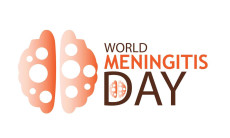- Obstetric fistula results from prolonged obstructed labour without early medical attention, leading to a hole between the birth canal and the bladder, This leads to leakage of urine or faeces from the birth canal.
United Nation Population Fund [UNPF] sought to end fistula by 2030. March 23, 2024, marks a pivotal day in the fight against Obstetric fistula, a devastating childbirth injury affecting over two million women.
Casualties suffer in silence because of the stigma going on. However, fistula is not a death sentence; it is treatable and curable.
As the campaign proceeds, the health sector is unprepared. Less than ten surgeons in the country can combat the elephant in the room.
In Kenya, 3 or 4 out of 1000 child delivery is affected by fistula, yet with only ten surgeons, the treatment of the cases proves to be a mountain.
"Fistula knows no boundaries, it affects any woman, young or old," Betty Kavuka, a reproductive health coordinator and a nurse by profession, told Citizen TV In an interview.
Read More
Severe social stigma accompanies these women as they manoeuvre through this problem. Some lose their marriages, get into depression, and find it hard to take care of the born child.
“Any woman can be affected by fistula. Unfortunately, 90% of their spouses run away," Betty said.
No one wants to be in the company of someone passing urine or stool uncontrollably from their birth canal.
The judgement is automatic, yet 'she' is the victim caught in the situation.
Lack of awareness about proper maternal care, coupled with practices like Female Genital Mutilation [FGM] and early pregnancy, are among the causes of fistula.
There is a need for a collaboration to educate girls, mothers and society on fistula, insisting that it is treatable and needs care, not isolation.
Surgical intervention offers hope for affected women; however, the cost of such procedures presents a significant barrier to accessing treatment.
On average, one needs Ksh 65,000 -300,000 to get treatment. Some of the victims are young girls and mothers who cannot afford three meals a day, given the current economic situation in the country.
The government and other stakeholders are among the pioneers to spearhead affordable treatment restoring joy and hope.
Affected women must overcome the narrative of ‘this is my issue ‘and allow for help. They should also go for checkups after delivery, especially after two weeks, while following closely the routine in the maternity book.
Obstetric fistula results from prolonged obstructed labour without early medical attention, leading to a hole between the birth canal and the bladder. This leads to leakage of urine or faeces from the birth canal.
Urine and faeces fistula are the most common ones among others.
Join the movement to end obstetric fistula. Participate in local events, share information on social media, and contribute to organizations working on the ground. It is time to restore dignity and hope for women in this condition.





-1759480422-md.jpg)





-1759480422-sm.jpg)
